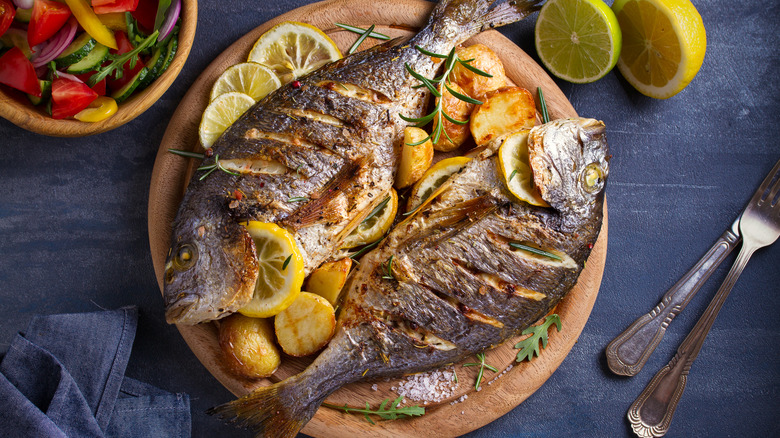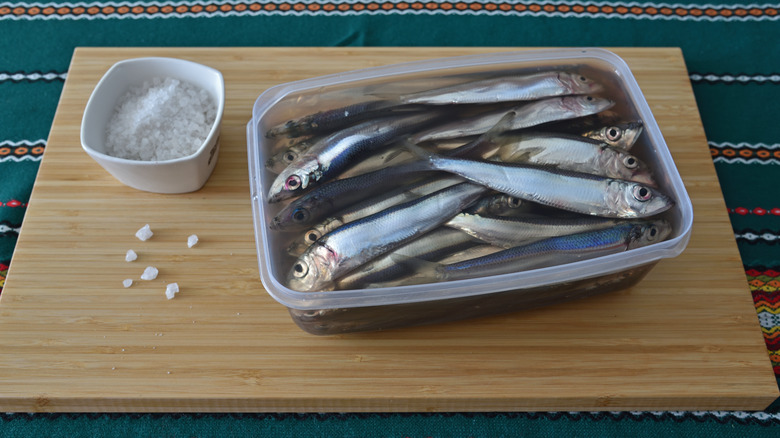The Only 2 Ingredients You Need To Brine Fish
You may be more familiar with brining seafood as a food preservation method (more popularly known as pickling), where you soak your catch in a weak brine. However, brining also stands as an age-old culinary technique used to enhance the flavors and textures of seafood before cooking. Moreover, the moisture resulting from the soak ensures your fish doesn't dry out during cooking, especially if you're going to grill that salmon, tuna, or swordfish. With a simple yet profound alchemy of two essential ingredients — water and kosher salt — you can transform an ordinary piece of fish into a delightful harmony of taste and tenderness.
On the one hand, water is the canvas upon which the art of brining occurs. Its role is not only to envelop the fish but also to preserve its succulence. On the other hand, the salt's role is to infuse every fiber of the fish with a subtle balance of salinity and seasoned flavor.
How to brine fish
The process of brining fish is simple, yet mastering the balance between water and kosher salt requires finesse. A general rule of thumb that works for almost any type of fish is a 6% brine, or 5 tablespoons kosher salt in 2 quarts of water. Depending on your taste preferences, this ratio can be adjusted to suit your culinary aspirations.
Use a large non-reactive glass, plastic, or enamel bowl, and add in your two ingredients, water and salt. Whisk until all the salt is dissolved. You can begin with warm water to quicken this process but remember to let the solution cool to room temperature afterward. Next, submerge the fish in the brine solution and put it in the fridge. Let it brine for 15 minutes or longer, depending on your taste preference.
After that, rinse the fish, pat dry, and proceed to cook it as you normally would. And in case you aren't ready to cook it yet, no worries, you can pop it back in the fridge for a few hours until you're ready to grill, smoke, or pan-sear your fish. Ultimately, this unique interaction between the salt, water, and fish proteins results in a remarkably tender fish that resists overcooking and delivers a melt-in-your-mouth experience.

